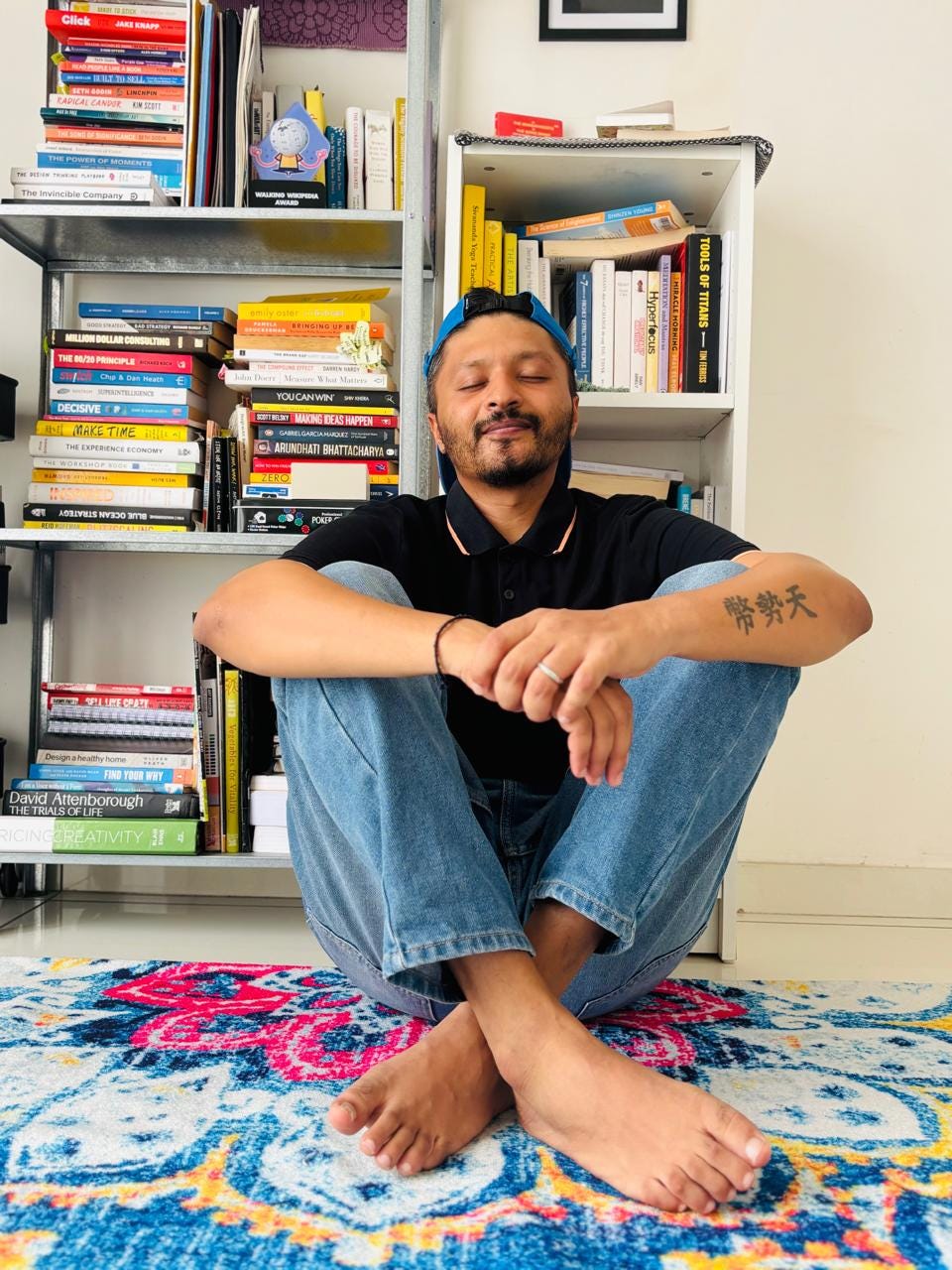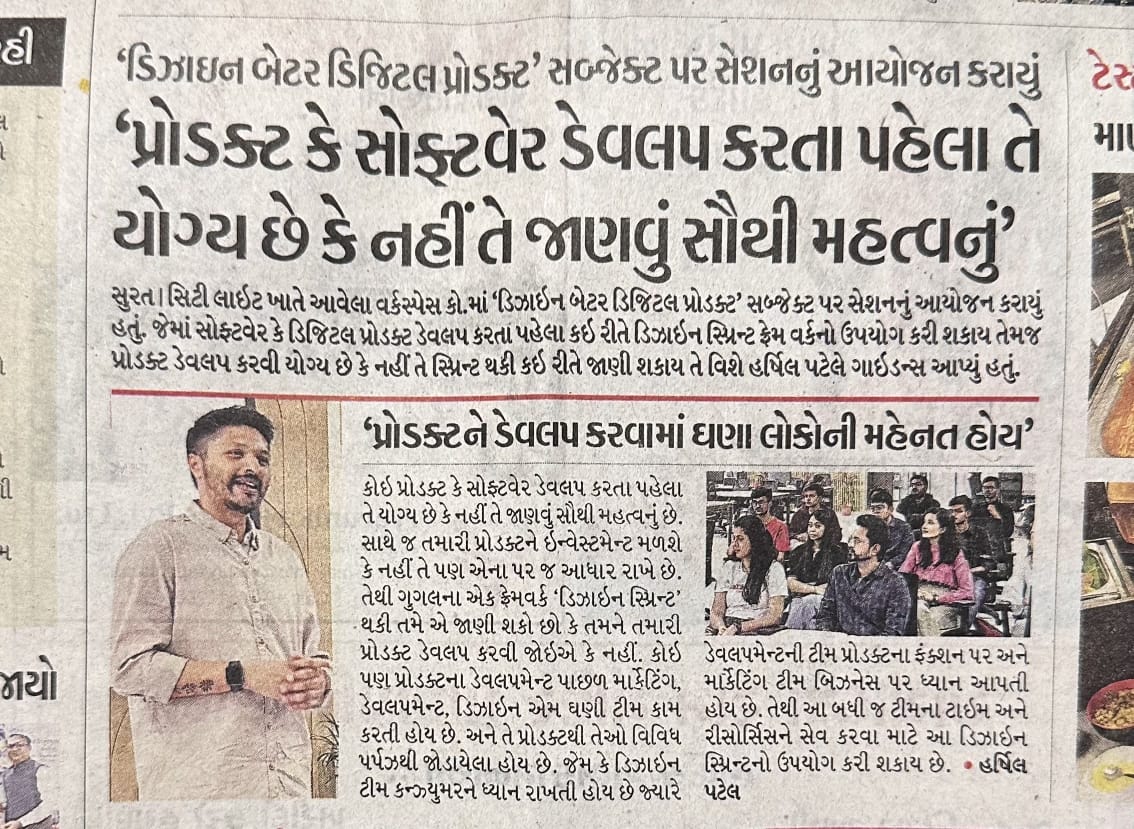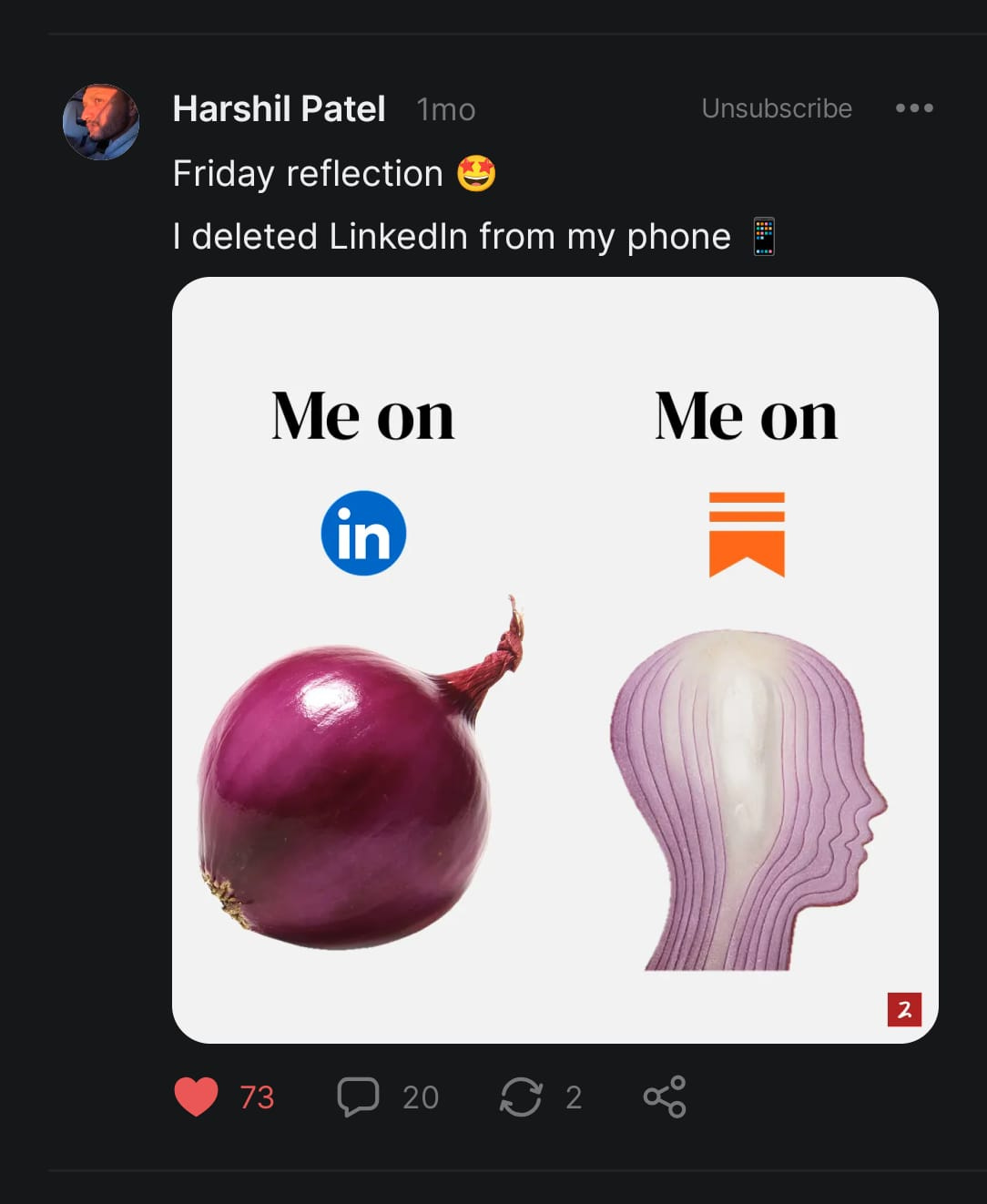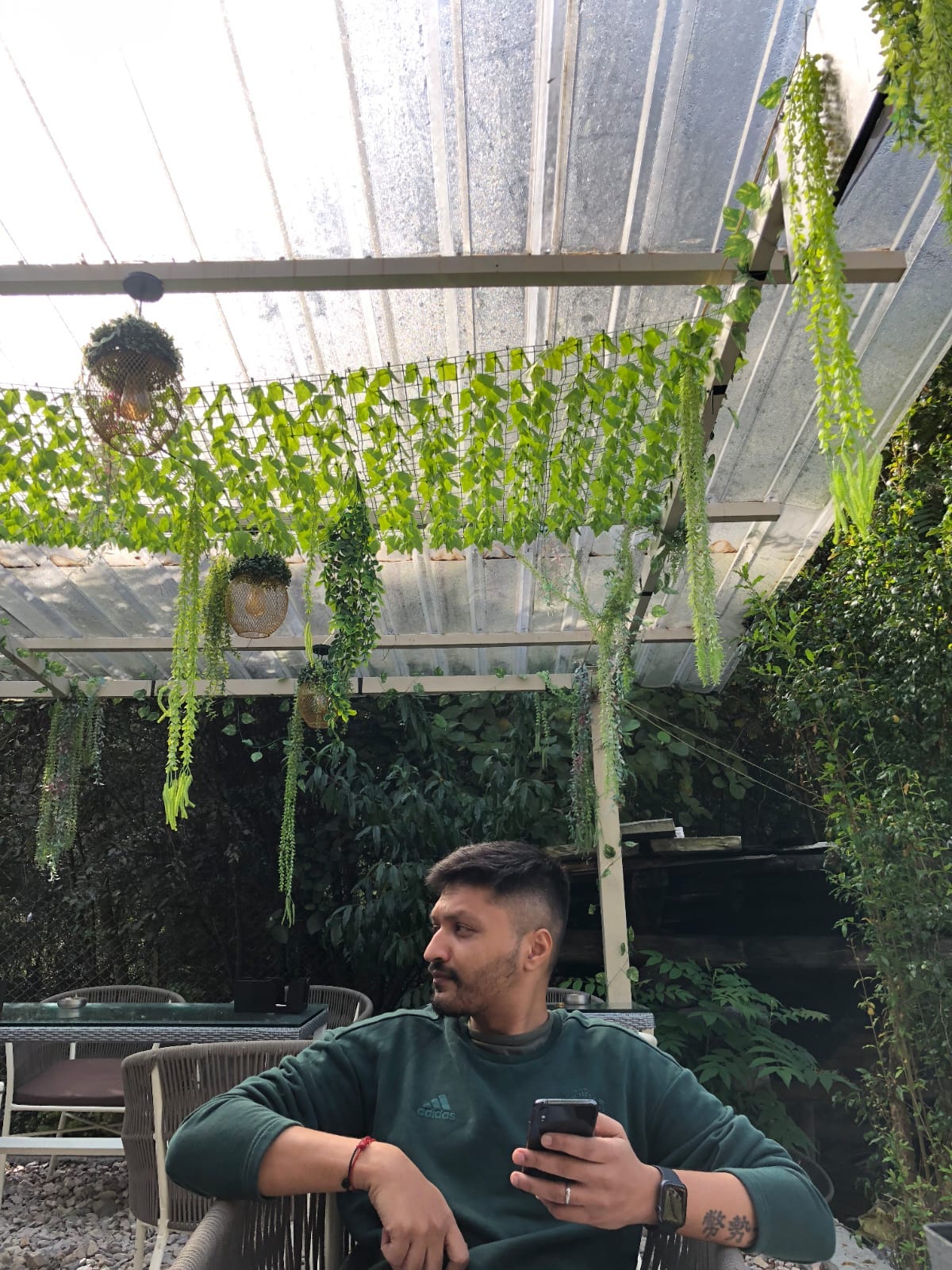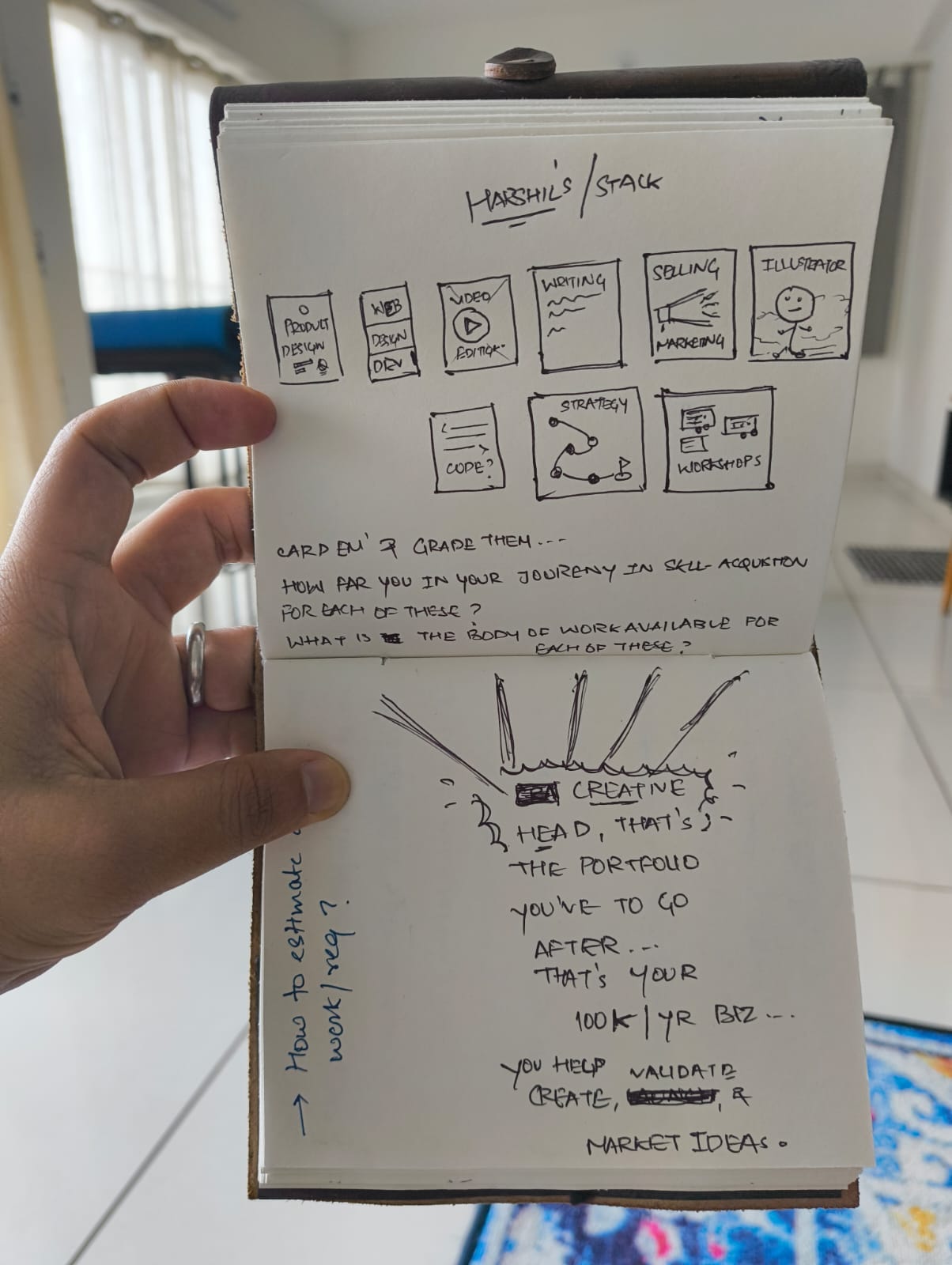How to build confidence?
a science backed, personal narrative
Confidence is not a feeling; it's a practice
I have had a long history of being under-confident, selling myself short, thinking less of me, and of course 'imposter syndrome' - this word is a buzz kill because it doesn't allow us to go under the surface of what actually makes or breaks a person's confidence.
One has to cultivate confidence.
You need confidence to jump, to drive, to kick a ball, to hit a ball, to sing, to dance, to speak - every activity that your brain thinks is open to other people's judgment requires you to cultivate confidence. What a fucking irony - outwardly, tangible acts require you to build a skill that is intangible in nature.
Your nervous system is running the show
From very little I have learned about human history, one concept that really struck me hard was 'nervous system regulation'. There's a process called Neuroception where your neural circuits are scanning your environment for safety or danger/threatening cues. Based on these signals, you might find yourself in a green, yellow, or a red zone.
Red zone: you freeze when faced with a challenge, paralyzed by the very thing you want to do.
Yellow zone: you anxiously navigate the challenge, heart racing, second-guessing every move.
Green zone: you feel calm and motivated to take on the challenge, present and capable.
Now, all of this influences your social, emotional, and creative confidence. If you are low on confidence, your inability to act when faced with a challenge could further drive you down the restless and anxious state. And the opposite is also true - if you are feeling restless or anxious, your confidence will be low across all three important aspects of human existence and interactions.
The evidence-based approach to confidence
So, how do you cultivate it?
Well, first things first - there are gurus, coaches, and super humans who can teach you how to build confidence - if you have time, money, energy and access to a guru, I suggest you stop reading this piece and go meet them. If not, let's dive in.
Since we are talking social, emotional, and creative confidence, I am outlining some activities that have helped me build my confidence.
1. Read (and fuck you if you say you read medium)
And fuck you if you say I read Medium, TechCrunch, Hacker News or any of that bullshit. I mean read books. Start at 'first principles/foundations' of topics that intrigue you. For instance, if I want to start sketching, I will start reading a book titled Sketching for Absolute Beginners with a hope that the book will cover basics and give me a strong foundation to build my practice on.
Reading books makes you feel like a knowledgeable, resourceful intellect. Remember, it's about how you feel - you are not showing off your bookshelf or even the fact that you read, but when you are around a bunch of idiots, you inside your spine, blood, and bones feel that you are better.
And if you find yourself in a room filled with people above your value chain, you will have this natural curiosity to know what kind of books they read and start reading those to get better at your game. What used to scare you will start making you curious. Of course you would still be anxious in this room, but it's a part of the game. Keeping you on your toes.
In short, your mind will take this feeling and release a chemical that will make you happy. Has a lot to do with your 'social confidence.'
Grey zone: Be mindful of being aware about the challenge you are about to take on. You don't want to chew more than you can digest.
Every penny that I spend on books, I feel a lot more confident compared to folks around me. Now if you say you don't care about what people think about you - I have one thing to say - you are a fucking liar or god.
2. Speak, publicly
It happened to be out of sheer necessity to market myself, to let people know that I exist. Honestly, never ever in my life had I stood up on a stage and blabbered for more than 5 minutes at a stretch. At the age of 30, I started a design agency to make money. Money comes from marketing yourself, so the only marketing tool I had at that point was my mouth and the skill I had to develop was 'public speaking.'
I started speaking at local design meet-ups and ran workshopping sessions. Slowly, I started enjoying the stage, the attention of the audience. It was like theatre in my mind. Authentic self-expression got me published in a local newspaper that my city reads - fucking cool, aye?
So, ask yourself - what is something I really do well? Something that you know or have learned doing better than those around you? Design Sprint, AI, Yoga, Ayurveda, Nutrition, Meals - anything, just start performing your act.
Trust me, it works - post public speaking, me and my friends started YouTube, did a podcast (21+ episodes). Today, give me a topic, give me 2 hours, and I can stand in front of you and speak about anything for more than 45 minutes (minimum). That's confidence.
3. Write
Writing is an act of 'creation' - it's art. Now, if you're here reading this, you already know what 'writing (form of art)' can do to our brains.
“When the world feels like it's burning, art can seem like an escape at its best, a place for people to catch their breath, and at its worst, an ostrich sticking its head in the sand. But I think this does a disservice to the truth that art can reveal. It gives us a wider lens, almost like x-ray vision, into the heart of culture, its values, and contradictions... I suspect that it's at times that art feels the most small and indulgent is exactly when we need it the most."
(taken from Dean Power’s Post linked below)
That's it. Use your words to express yourself. And if you don't know what to write about - here's how you can get started.
It's the most simplest and easiest form of creative act you can indulge in on a daily basis. Do this and see your confidence grow - you will know yourself better. You will create new neural pathways that didn't exist before. Ideas will start surfacing. You will be well equipped to take on challenges at work and your personal life because you will be high (or at least better) on emotional and creative confidence.
4. Move
Yeah, find 25 minutes to move your body. Integrate physical movement in your daily routine. You have got to take the time out to show up for yourself, for your physical health - there's no better technology than the 'human body' and our bodies never fail us, we have been failing our bodies.
Back in the late 90s, a team at the University of Illinois ran a study with adults who began doing just 20 minutes of brisk walking, three times a week. Within months, MRI scans showed thicker prefrontal cortices — the part of the brain tied to decision-making and confidence in social settings (Colcombe et al., 2006).
Hence proved: movement builds your social and creative confidence.
Bonus: Sleep for 8 hours, start with a moderate breakfast, make lunch your heaviest meal, and dinner your lightest. Take supplements for your joints if you are above 30. Keep your sugar in check. In a week, go for a run once, do yoga once, do a HIT session, play an outdoor/indoor sport at least once a week. That's it. Your health is sorted.
5. Stay fresh, groom yourself
Honestly, I never used to think that grooming could have a positive impact on how I lead my day and this belief still fucks with my ability to get my ass together and go to a hairdresser. I still struggle here - I keep saying that I want to go for a haircut every 6 weeks but I don't. At the point of this writing, I am still planning to get a cut.
But hey, trust me - once I see myself in a fresh cut, fuck - I feel like I'm on top of the world. I suddenly have this different aura - a spark of social confidence - I conduct myself better, I dress better, heck, I even talk better.
In a study at the University of Hertfordshire, Dr. Karen Pine asked participants to rate their mood before and after a simple haircut. They didn’t know what was being measured — just reported how they felt. Results? A significant spike in self-esteem immediately after grooming. One participant even said, “I feel like someone upgraded my software.” (Pine, Mind What You Wear: The Psychology of Fashion).
Psychologists call this the enclothed cognition effect — the way what you wear (or how put‑together you feel) feeds back into your sense of capability (Adam & Galinsky, 2012).
Social Confidence 🔝
6. Visualise
I am not talking moodboards or pins in an app - don't get me wrong these things do work and help but the kind of stuff I am talking about is different. I am talking about working with your hands, without gadgets, getting your whole body into the creative act. This can do wonders to your confidence and alters the way you think and create ideas.
There's a saying - if your mind cannot visualise, it won't stick.
Here's something I recently visualised - an outline of who I am and could become based on the skills I currently have and things I am excited to learn.
In one study, people preparing for job interviews were split into two groups. One group just imagined how great it would feel to get the job. The other group imagined themselves actually preparing — looking up the company, practicing answers, picking what to wear. That second group ended up performing way better in the real interviews (Taylor & Pham, 1996).
So, whatever it is you are trying to figure out – work with your hands, move, make it as sensory‑appealing as possible. You will be able to see beyond the fog.
Well, that's about it. I have tried each of these things and these activities have helped me keep a rather confident approach through the day.
My advice All of these activities if done on a daily or weekly basis will start showing results earlier than you expect. Think in days and not months (exception like meet-ups or grooming could take place once in a month or 45 days).
Go on, have fun being you. I am rooting for you.


